Good fiction writers make use of the five senses to immerse the reader deep into the story world and to layer in emotions and moods.
Rich details depicting the senses bring realism into the story so that we almost feel that we participate in the scene. One of my friends tells the story of reading a book that drew her so deeply into a blustery day that she gasped when a friend walked in the room without a coat on!
So let’s take a look at the fives senses and discover how they can enrich your stories.
Sight
What we see remains outside of our body, so it’s probably the least active of the five senses. Most of the time it leaves little to interpret and may be the easiest to include in a scene. This doesn’t mean it’s unimportant. It does mean that you might want to take extra care to make the things your characters see unique. For instance, you might include the quality of the light—bright sunshine, shadows, or mist. Are there interesting boundaries such as a wall or hedge? Don’t forget color hues and textures.
When my mother comes to visit, she will see things in my house that no one else sees—like maybe a place I missed when I dusted! My daughter will notice the new photos on the wall because she’s crazy about pictures and frames. What unique thing will your hero see that no one else will notice? If it’s something that sets a mood or relates to his feelings, all the better.
Touch
This sense come closer to our characters’ bodies than sight—obviously since it has to touch them. The things my characters see flow easily into my mind, but sometimes I have to slow down and think a bit harder as to what they touch—or what touches them. But the sense of touch can make the scene memorable. Maybe it’s the silky hair of an infant, or the tickle of sweat slinking down the hero’s back. Again, you can use these details to enhance the mood of a scene.
Hearing
Now we’re coming even closer to the character because sound vibrates the tiny bones inside the ear. It changes them. Humans are capable of remembering and distinguishing an incredible number of sounds. Think of all the musical instruments you know. A piano doesn’t sound at all like a saxophone or a trombone. Even without caller ID, we often know who’s on the phone just by their voice.
Although sound makes such a huge difference to us, it’s easy to write page after page when our characters hear nothing except another person talking. If you can visit a setting similar to the one in your story, sit and listen for a while. Are there birds in the trees? Waves crashing on the shore? Hooves clomping on the desert sand? Come on, make some noise!
Smell
Now we’ve taken a step even closer to the character. We inhale odors and fragrances right inside the lungs. I don’t know about you, but smells stir up memories for me. My mother’s spicy cornbread dressing reminds me of Thanksgiving when we visited the small west Texas town where my aunt lived. Even though she’s no longer with us, I almost see my aunt’s cheery face when I smell it cooking. Every time I smell a skunk, I remember the time one got inside our garage when I was a child. Not fun!
Patricia McClanahan says in her book Word Painting, “A picture may be worth a thousand words, but a scent is worth a million.”
You might use smell to give a clue in a detective thriller or even combine contrasting smells for a unique touch. Use the lavish sense of smell to bring the setting alive and to evoke memories in your characters. And notice how those smells I remembered came with emotions. They should come that way for your characters too.
Taste
Food goes right inside the mouth and down into the stomach. It’s the most intimate of all the senses and requires action on the part of the one tasting. I’m not suggesting you make your characters eat or drink all the time, although they might seem a bit weird if they never do. How about smoke in the air that tastes bitter on the heroine’s tongue? Or maybe she indulges in a woman’s comfort food of choice—chocolate, of course. So she’s licking her wounds as well as tasting something.
A Challenge
When I teach a writing technique or encourage the use of metaphors or the senses, I always worry that a student will take it too much to heart and overuse it. Any technique can end up destructive if you pile it on, but neglecting the five senses will rob your story of realism.
Exercise:
- Look over a scene you’ve written. Do you have at least one of each of the five senses there? Do they evoke memories, include emotions, or set a mood? And just in case—check to see if you’ve over done it. Too many sensory images can be even worse than too few.
Feel free to ask questions in the comment section.
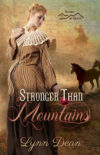
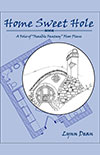

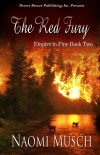
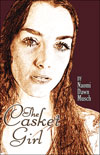
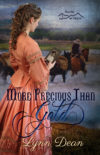


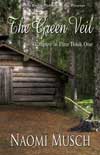







Speak Your Mind
You must be logged in to post a comment.